Influential analyst and adviser explains why powering cars with H2 is a terrible idea, no matter what the hydrocarbons industry says

Michael Liebreich, CEO of Liebreich Associates.Photo: Liebreich Associates
30 June 2021
By Leigh Collins
Michael Liebreich, the charismatic founder of BloombergNEF who is now an independent analyst and adviser, is extremely passionate when talking about clean hydrogen as a tool for decarbonisation — but not in the way you might think.
As a firm advocate of decarbonising our planet as quickly and cost-effectively as possible, he is strongly against using clean hydrogen in certain sectors where there are cheaper and more efficient electric solutions, such as cars and domestic heating — in stark contrast to elements within the oil & gas sector that are spending tens of millions of euros on lobbying for such uses.
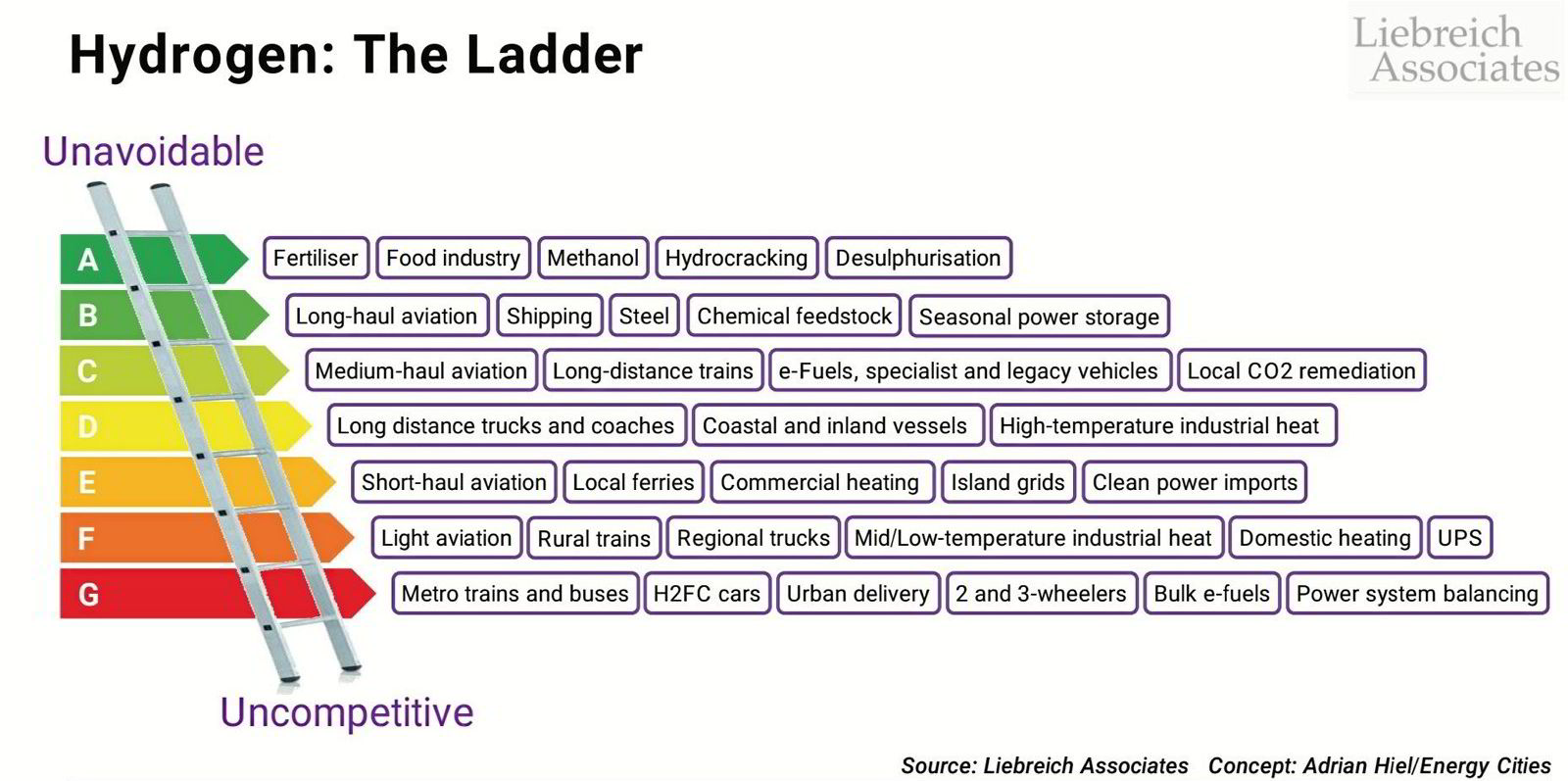
Michael Liebreich's "hydrogen ladder" chart identifying the merits of use cases for clean hydrogen. Photo: Liebreich Associates
In an attempt to guide governments and industry players away from the spin, he has created what he calls his Hydrogen Ladder, a simple chart (pictured) showing which use cases for H2 are uncompetitive, which are unavoidable for decarbonisation, and which sit somewhere in the middle.
So at the top of his ladder, at the “unavoidable” end, lie the existing uses of highly polluting grey hydrogen produced from unabated fossil fuels — such as ammonia-based fertiliser and oil refining, which are responsible for 3-4% of all global carbon emissions. Seasonal power storage, steel, chemicals, shipping and long-haul aviation (using liquid hydrogen or synthetic fuels derived from H2) are also high up.
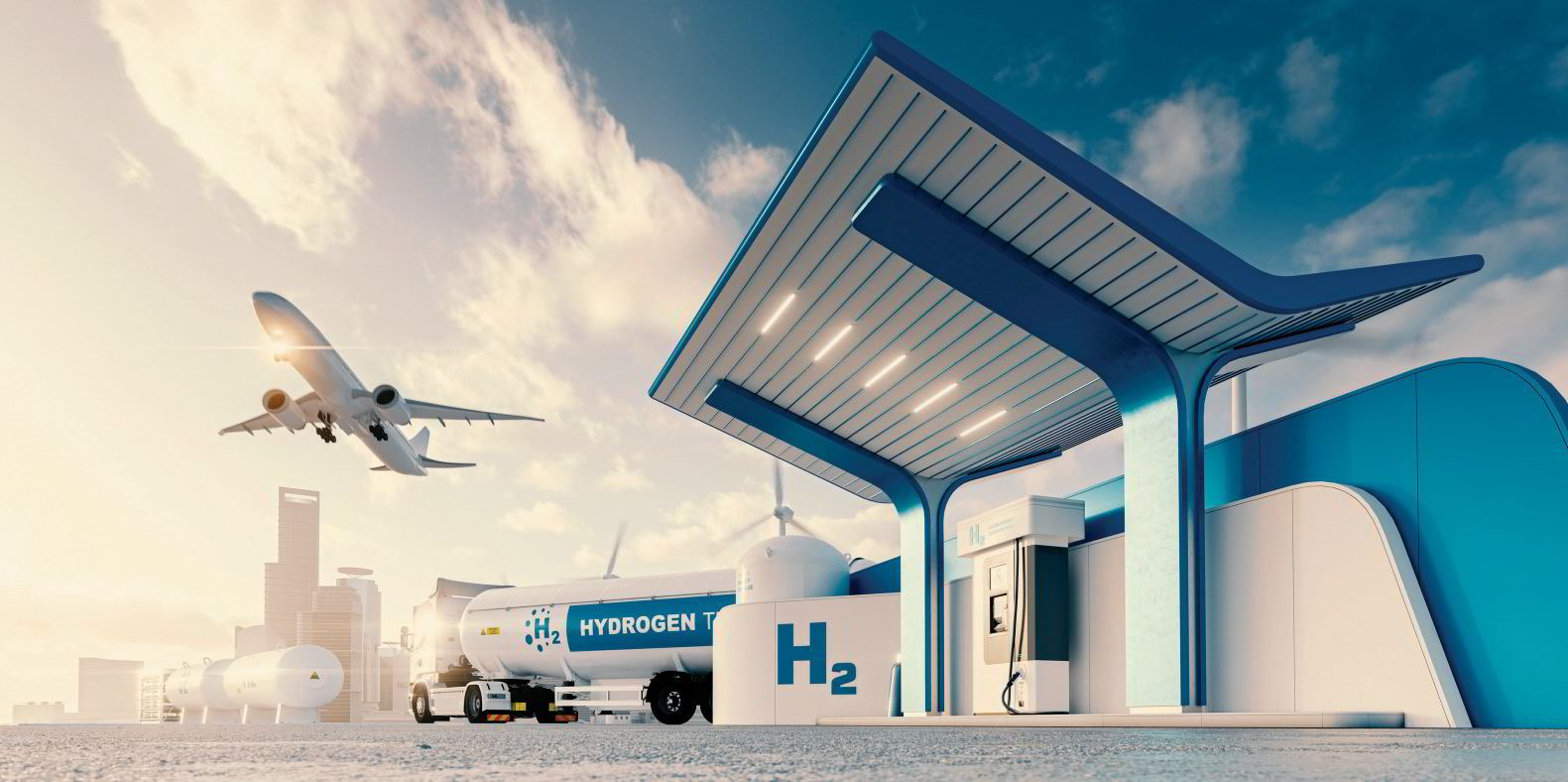
SPECIAL REPORT | Is the future role of green hydrogen in the energy mix being overstated?Read more
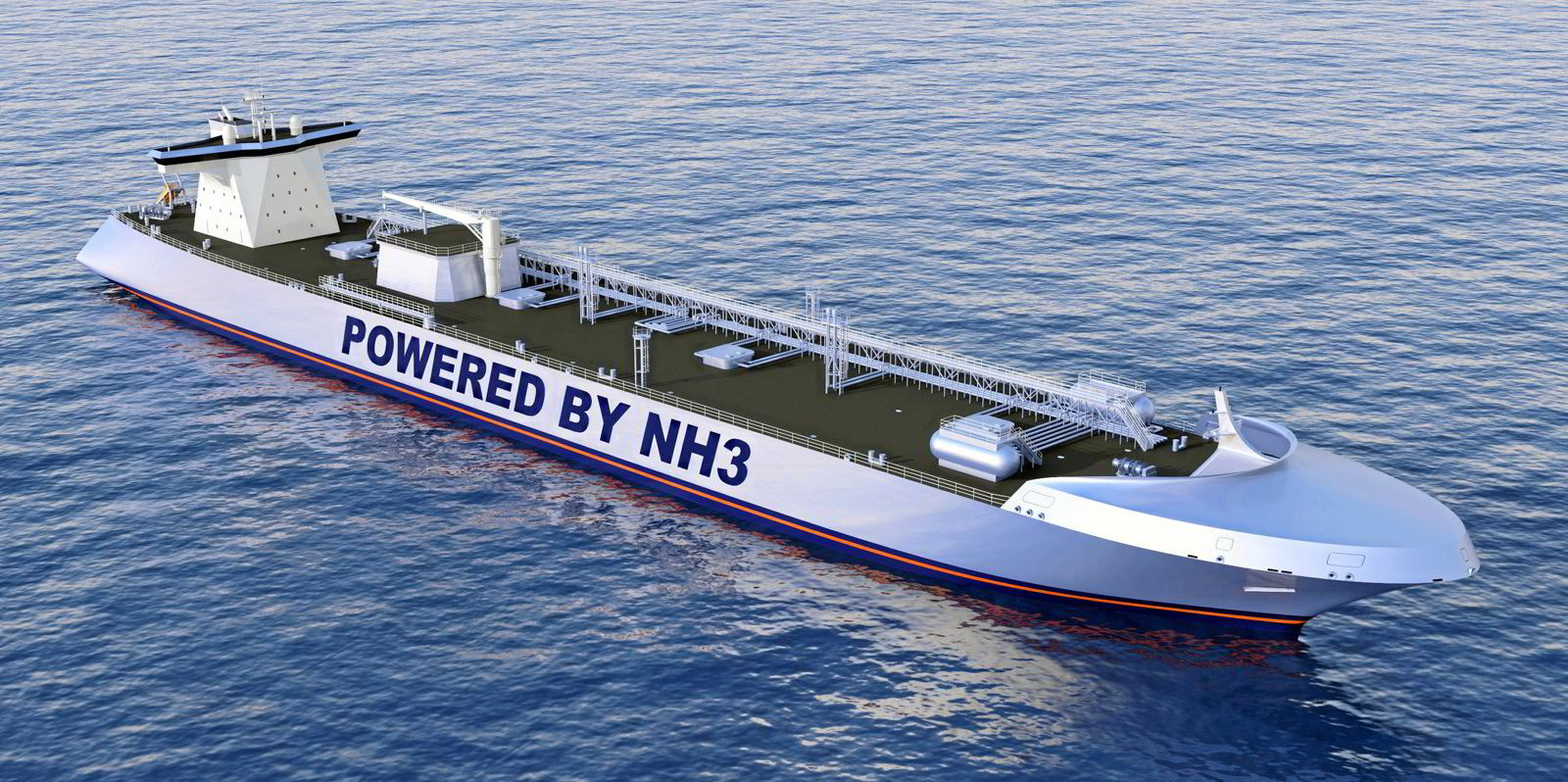
SPECIAL REPORT | Is hydrogen the best option to decarbonise land transport, shipping and aviation?Read more
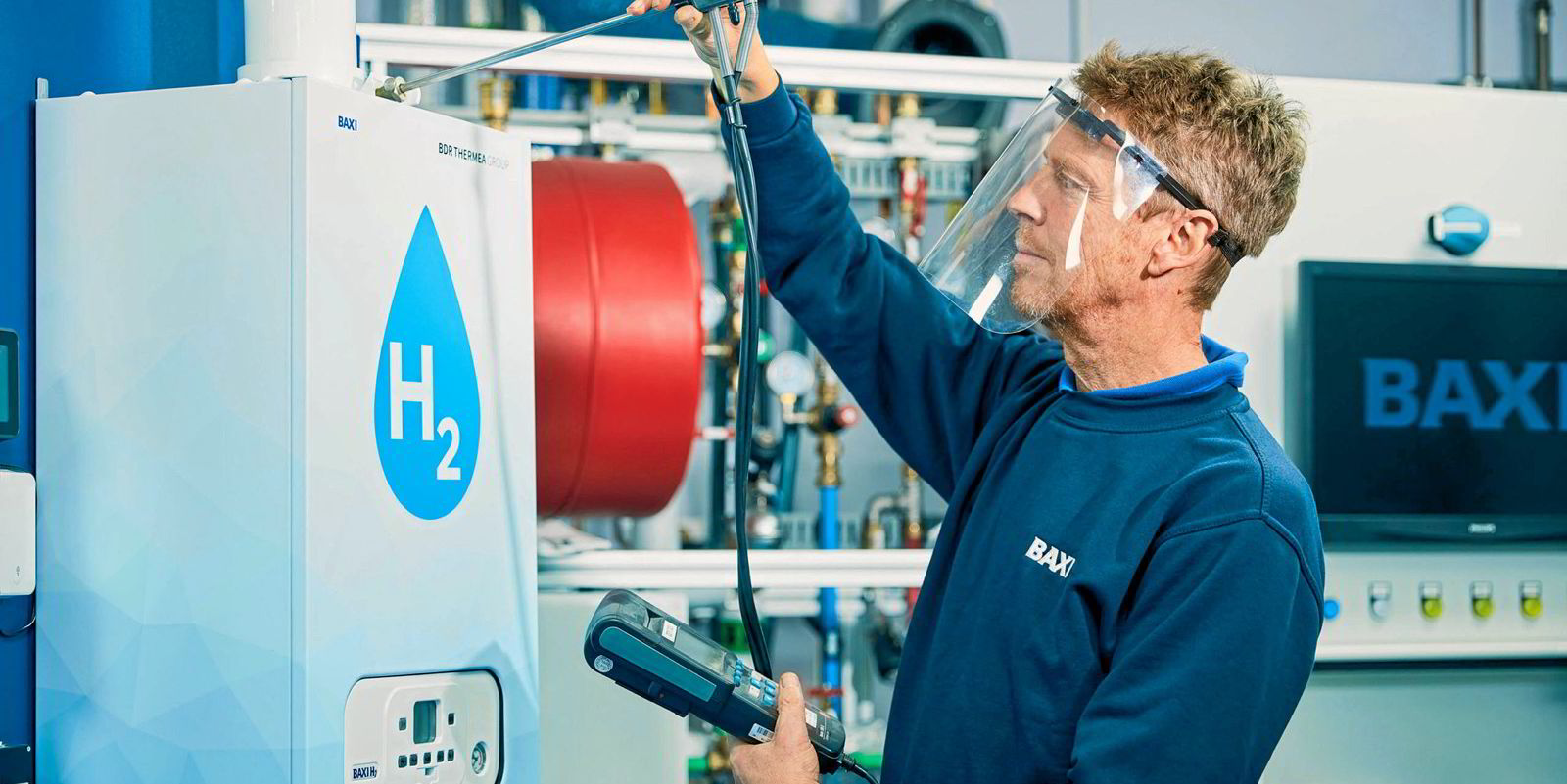
SPECIAL REPORT | Is hydrogen the best option to decarbonise heating and heavy industry?Read more
At the bottom “uncompetitive” end of the ladder are hydrogen cars and domestic heating — which he says make no sense when you have battery-powered electric vehicles (BEVs) and heat pumps.
Liebreich — a pro-business supporter of the UK Conservative Party, who sits on the British government board of trade and is also an advisor to Norwegian oil giant Equinor — believes that oil & gas companies know that hydrogen is a poor choice for these two segments, but are pursuing them nonetheless.
“If you're an oil and gas company, in a way, talking about hydrogen is kind of a two-way bet because if it works, then you're embedded in the hydrogen industry — but if it doesn't work, you've delayed the transition to the thing you don't make, which is electricity,” he tells Recharge. “So why wouldn't you promote hydrogen for inappropriate use? For the things that are not at the top of the ladder, that are fairly down — so local trains, local buses, cars, delivery vehicles — why not promote it? Because at worst it creates confusion, which is great [for them]. And these companies have an interest in this [electric] stuff not moving too fast, I'm afraid — for all their good words.”
Liebreich gives an example of Shell being happy to spend $12bn on a floating liquefied natural gas (LNG) platform, the Prelude, which has seen a host of problems, “but they won't spend $12bn just producing blue, green, pink, or any other sort of clean hydrogen for those [existing] uses where we currently are driving 3-4% of global emissions”.
He points to a report last year by lobbying watchdog Corporate Europe Observatory, which found that the “hydrogen lobby, whose main players are fossil gas companies, declared a combined annual expenditure of €58.6m trying to influence Brussels policy making”.
“So what they want to do is fund people to go and lobby in Brussels for uses of hydrogen, where they basically think that because politicians like having photos taken [with hydrogen cars and trains], they will tolerate [the existing use of grey hydrogen],” says Liebreich. “I don't know whether it's disingenuity or a phony war, but we’re talking at cross purposes if we’re using dirty hydrogen [for existing uses], but we’re talking about clean hydrogen [for cars].
“If I were a [government] minister, what I would be saying is anytime anybody wants to come through the door and talk about hydrogen… and they want to start making presentations about cars and trucks and trains, I'd be, like, “wait, let me stop you. What's your plan for fertiliser? What’s your plan in your refinery, you're taking [unabated] natural gas and you're using it in fertilser or in hydrocracking. What's your plan [to switch to cleaner hydrogen], but also, what do you need?”
The argument against hydrogen cars
Liebreich says that people in the oil industry are smart and understand the inefficiencies and expense of hydrogen-powered fuel-cell electric vehicles (FCEVs).

‘Our plasma electrolysers will cut the cost of green hydrogen by a factor of three’Read more
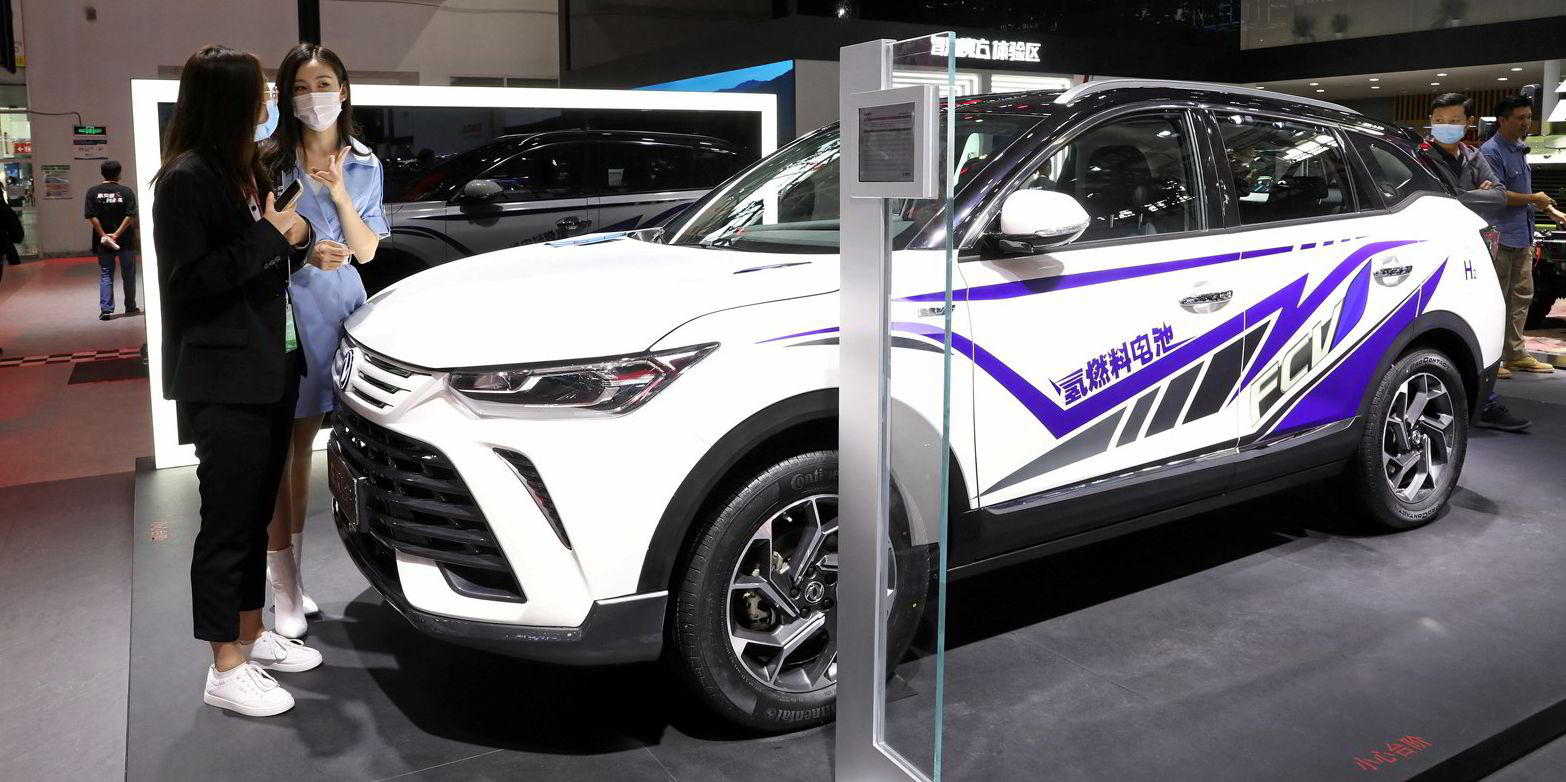
China to spend billions on hydrogen vehicles despite a minimal supply of clean H2Read more
“It's so obvious that hydrogen is less efficient because it's got these chemical processes and… everybody's done the numbers that show that if you have clean electricity and you want to drive somewhere, the last thing you would do is stick it in an electrolyser and then have all these other [energy] losses and then put it in a fuel cell and have more losses. You can't break the laws of physics — this is thermodynamics, it's the microeconomics of something that's very simple versus something that's very complex.
“The other argument that never gets surfaced enough is that if you look at the cars and you look at the competitive dimensions, basically, electric wins on everything… sometimes by large margins. Nought to 60 in four seconds [for a battery electric vehicle (BEV)] versus nine seconds [in an FCEV], being able to fold the seats down and put loads of luggage in versus no, sorry, there's a hydrogen cylinder in there [taking up space]. [BEVs are] three times as efficient, and by the way, hydrogen [cars] don’t win on weight, they tend to be heavier, so they don’t even have that.
“What they win on is being able to connect it to the nozzle and fill it with hydrogen for 400 miles in five minutes — setting aside the fact that the nozzle then gets really cold and actually the next person has to wait for it to warm up. That's very important if you're going on a trip that's 400 miles, because under that you might as well just buy the cheaper and better electric car.
“So right now, the single advantage of the hydrogen car, wherever you can buy one, is that it can drive somewhere where you can't refuel because there's no hydrogen [filling stations].”
He continues: “Even if that were fixed, even if we threw enough taxpayers' money at it so that then when you drive your 350-400 miles, there was a hydrogen fuelling station, that would save you the 45 minutes that you would otherwise have to charge [a BEV] to get back.
“Okay, so you've saved 45 minutes. The rest of the year, you're back at home and back to your boring commute, and you're driving your 20 miles a day. Well, every time you do 300 miles, you have to go to a hydrogen filling station [unlike a BEV that you can charge at home]. So 40 times a year, you have to waste 10 minutes and maybe more driving to a hydrogen filling station. That's 400 minutes and you've saved yourself 45 minutes on the, maybe, two to five times that you actually drive to your cottage or to the Alps, or wherever. So even on the time spent, on an annual basis, it's not a win, it's a big loss for most people.”

Power systems will struggle if all cars are fully electric, claims Hydrogen Council bossRead more

World’s largest green hydrogen plan to tap 45GW of wind and solar in KazakhstanRead more
Recharge pointed to its recent interview with Hydrogen Council boss Daryl Wilson, who said that hydrogen cars will be needed because the electricity infrastructure won’t be able to cope with charging millions of BEVs.
“That's nonsense,” says Liebreich. “[In] 1995, [people said] ‘we'll never use the internet because there are not enough modems’. [In] 2000, ‘we'll never do online video because there isn't enough bandwidth’, then, ‘you can't do multiple streams of video because you will never get fibre to the home’. We’ve got 30 years between now and 2050 [when countries plan to reach net-zero emissions] and we will simply have more and more investment. We’ve dug up the streets for cable, phone, gas, cable, fibre, electricity. It's a thing we do. We know how to just build slowly over time. This is not rocket science.
“Plus, there's smart charging. And of course, we know we're going to be doing this because we're also going to be having to add capacity because of electric heating. And so the idea that you'll say, ‘no, no, we mustn't do that extension of existing infrastructure, we must build a completely new one [for hydrogen refuelling], it's nonsense, frankly.”
The argument against hydrogen for domestic heating
Some elements of the hydrocarbons sector, particularly gas distribution companies, have been lobbying to convert their gas grids to run on H2 — and have had some success, with the UK, for example, spending tens of millions of pounds on domestic hydrogen heating trials.
As Recharge has previously reported, converting gas networks to hydrogen — which has smaller molecules than natural gas — would require all underground metal gas pipes to be replaced by polyethylene ones, including those concealed in walls and under floorboards in people’s homes. Every gas valve and compressor in each network would also have to be replaced, plus the energy needed to pump H2 around the gas grid would be three times higher than for natural gas.
And of course, heat pumps are almost six times more energy efficient than hydrogen boilers, requiring 150% less primary energy to produce the same amount of heat.
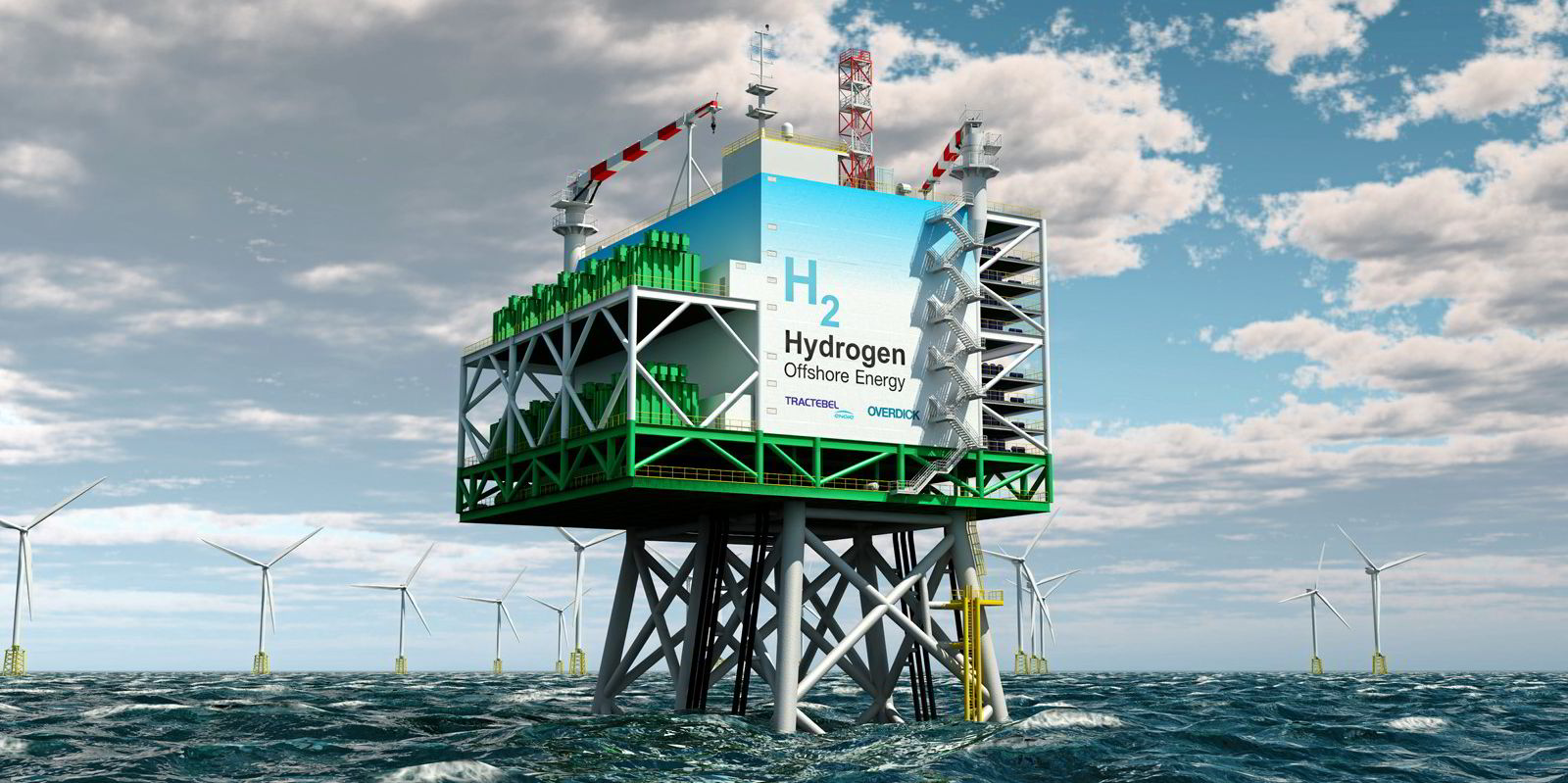
Global green-hydrogen pipeline exceeds 200GW — here's the 24 largest gigawatt-scale projectsRead more
There are also issues around the safety of using flammable hydrogen in people’s homes, as well as air quality, because burning hydrogen produces poisonous nitrous oxides that are also powerful greenhouse gases, Liebreich points out.
“Hydrogen heating is just not going to happen,” he says.
The reason why gas distribution companies are lobbying for hydrogen use in domestic heating is not because they want the world to go green, but because “they want to get us locked into using their gas pipes for decarbonisation, because that's their asset”, Liebreich adds.
And the idea of blending clean hydrogen into the natural gas grid to reduce carbon emissions is “stupidly inefficient”, he adds.
“If you put 20% hydrogen into your gas, 20% of your volume is only 7% by energy. And if it’s green hydrogen, you’ve started with electricity. One unit of that electricity could have produced three units of heat [with a heat pump]. Instead, you've put that unit into the gas grid that you've turned into hydrogen. So you've lost 30% of [the energy]. Then you put it in the gas grid, compressed it and done all sorts of things to it. And then you put it in your boiler and got 85% efficiency out of it. So from 1kWh of electricity, you’ve got heating worth half a kilowatt-hour.
“If it’s blue hydrogen [derived from natural gas with carbon capture and storage], you’re always going to come back to my previous point, which is, ‘I’m not prepared to have this discussion until you've told me how you're going to decarbonise fertiliser!’”(Copyright)
In an attempt to guide governments and industry players away from the spin, he has created what he calls his Hydrogen Ladder, a simple chart (pictured) showing which use cases for H2 are uncompetitive, which are unavoidable for decarbonisation, and which sit somewhere in the middle.
So at the top of his ladder, at the “unavoidable” end, lie the existing uses of highly polluting grey hydrogen produced from unabated fossil fuels — such as ammonia-based fertiliser and oil refining, which are responsible for 3-4% of all global carbon emissions. Seasonal power storage, steel, chemicals, shipping and long-haul aviation (using liquid hydrogen or synthetic fuels derived from H2) are also high up.

SPECIAL REPORT | Is the future role of green hydrogen in the energy mix being overstated?Read more

SPECIAL REPORT | Is hydrogen the best option to decarbonise land transport, shipping and aviation?Read more

SPECIAL REPORT | Is hydrogen the best option to decarbonise heating and heavy industry?Read more
At the bottom “uncompetitive” end of the ladder are hydrogen cars and domestic heating — which he says make no sense when you have battery-powered electric vehicles (BEVs) and heat pumps.
Liebreich — a pro-business supporter of the UK Conservative Party, who sits on the British government board of trade and is also an advisor to Norwegian oil giant Equinor — believes that oil & gas companies know that hydrogen is a poor choice for these two segments, but are pursuing them nonetheless.
“If you're an oil and gas company, in a way, talking about hydrogen is kind of a two-way bet because if it works, then you're embedded in the hydrogen industry — but if it doesn't work, you've delayed the transition to the thing you don't make, which is electricity,” he tells Recharge. “So why wouldn't you promote hydrogen for inappropriate use? For the things that are not at the top of the ladder, that are fairly down — so local trains, local buses, cars, delivery vehicles — why not promote it? Because at worst it creates confusion, which is great [for them]. And these companies have an interest in this [electric] stuff not moving too fast, I'm afraid — for all their good words.”
Liebreich gives an example of Shell being happy to spend $12bn on a floating liquefied natural gas (LNG) platform, the Prelude, which has seen a host of problems, “but they won't spend $12bn just producing blue, green, pink, or any other sort of clean hydrogen for those [existing] uses where we currently are driving 3-4% of global emissions”.
He points to a report last year by lobbying watchdog Corporate Europe Observatory, which found that the “hydrogen lobby, whose main players are fossil gas companies, declared a combined annual expenditure of €58.6m trying to influence Brussels policy making”.
“So what they want to do is fund people to go and lobby in Brussels for uses of hydrogen, where they basically think that because politicians like having photos taken [with hydrogen cars and trains], they will tolerate [the existing use of grey hydrogen],” says Liebreich. “I don't know whether it's disingenuity or a phony war, but we’re talking at cross purposes if we’re using dirty hydrogen [for existing uses], but we’re talking about clean hydrogen [for cars].
“If I were a [government] minister, what I would be saying is anytime anybody wants to come through the door and talk about hydrogen… and they want to start making presentations about cars and trucks and trains, I'd be, like, “wait, let me stop you. What's your plan for fertiliser? What’s your plan in your refinery, you're taking [unabated] natural gas and you're using it in fertilser or in hydrocracking. What's your plan [to switch to cleaner hydrogen], but also, what do you need?”
The argument against hydrogen cars
Liebreich says that people in the oil industry are smart and understand the inefficiencies and expense of hydrogen-powered fuel-cell electric vehicles (FCEVs).

‘Our plasma electrolysers will cut the cost of green hydrogen by a factor of three’Read more

China to spend billions on hydrogen vehicles despite a minimal supply of clean H2Read more
“It's so obvious that hydrogen is less efficient because it's got these chemical processes and… everybody's done the numbers that show that if you have clean electricity and you want to drive somewhere, the last thing you would do is stick it in an electrolyser and then have all these other [energy] losses and then put it in a fuel cell and have more losses. You can't break the laws of physics — this is thermodynamics, it's the microeconomics of something that's very simple versus something that's very complex.
“The other argument that never gets surfaced enough is that if you look at the cars and you look at the competitive dimensions, basically, electric wins on everything… sometimes by large margins. Nought to 60 in four seconds [for a battery electric vehicle (BEV)] versus nine seconds [in an FCEV], being able to fold the seats down and put loads of luggage in versus no, sorry, there's a hydrogen cylinder in there [taking up space]. [BEVs are] three times as efficient, and by the way, hydrogen [cars] don’t win on weight, they tend to be heavier, so they don’t even have that.
“What they win on is being able to connect it to the nozzle and fill it with hydrogen for 400 miles in five minutes — setting aside the fact that the nozzle then gets really cold and actually the next person has to wait for it to warm up. That's very important if you're going on a trip that's 400 miles, because under that you might as well just buy the cheaper and better electric car.
“So right now, the single advantage of the hydrogen car, wherever you can buy one, is that it can drive somewhere where you can't refuel because there's no hydrogen [filling stations].”
He continues: “Even if that were fixed, even if we threw enough taxpayers' money at it so that then when you drive your 350-400 miles, there was a hydrogen fuelling station, that would save you the 45 minutes that you would otherwise have to charge [a BEV] to get back.
“Okay, so you've saved 45 minutes. The rest of the year, you're back at home and back to your boring commute, and you're driving your 20 miles a day. Well, every time you do 300 miles, you have to go to a hydrogen filling station [unlike a BEV that you can charge at home]. So 40 times a year, you have to waste 10 minutes and maybe more driving to a hydrogen filling station. That's 400 minutes and you've saved yourself 45 minutes on the, maybe, two to five times that you actually drive to your cottage or to the Alps, or wherever. So even on the time spent, on an annual basis, it's not a win, it's a big loss for most people.”

Power systems will struggle if all cars are fully electric, claims Hydrogen Council bossRead more

World’s largest green hydrogen plan to tap 45GW of wind and solar in KazakhstanRead more
Recharge pointed to its recent interview with Hydrogen Council boss Daryl Wilson, who said that hydrogen cars will be needed because the electricity infrastructure won’t be able to cope with charging millions of BEVs.
“That's nonsense,” says Liebreich. “[In] 1995, [people said] ‘we'll never use the internet because there are not enough modems’. [In] 2000, ‘we'll never do online video because there isn't enough bandwidth’, then, ‘you can't do multiple streams of video because you will never get fibre to the home’. We’ve got 30 years between now and 2050 [when countries plan to reach net-zero emissions] and we will simply have more and more investment. We’ve dug up the streets for cable, phone, gas, cable, fibre, electricity. It's a thing we do. We know how to just build slowly over time. This is not rocket science.
“Plus, there's smart charging. And of course, we know we're going to be doing this because we're also going to be having to add capacity because of electric heating. And so the idea that you'll say, ‘no, no, we mustn't do that extension of existing infrastructure, we must build a completely new one [for hydrogen refuelling], it's nonsense, frankly.”
The argument against hydrogen for domestic heating
Some elements of the hydrocarbons sector, particularly gas distribution companies, have been lobbying to convert their gas grids to run on H2 — and have had some success, with the UK, for example, spending tens of millions of pounds on domestic hydrogen heating trials.
As Recharge has previously reported, converting gas networks to hydrogen — which has smaller molecules than natural gas — would require all underground metal gas pipes to be replaced by polyethylene ones, including those concealed in walls and under floorboards in people’s homes. Every gas valve and compressor in each network would also have to be replaced, plus the energy needed to pump H2 around the gas grid would be three times higher than for natural gas.
And of course, heat pumps are almost six times more energy efficient than hydrogen boilers, requiring 150% less primary energy to produce the same amount of heat.

Global green-hydrogen pipeline exceeds 200GW — here's the 24 largest gigawatt-scale projectsRead more
There are also issues around the safety of using flammable hydrogen in people’s homes, as well as air quality, because burning hydrogen produces poisonous nitrous oxides that are also powerful greenhouse gases, Liebreich points out.
“Hydrogen heating is just not going to happen,” he says.
The reason why gas distribution companies are lobbying for hydrogen use in domestic heating is not because they want the world to go green, but because “they want to get us locked into using their gas pipes for decarbonisation, because that's their asset”, Liebreich adds.
And the idea of blending clean hydrogen into the natural gas grid to reduce carbon emissions is “stupidly inefficient”, he adds.
“If you put 20% hydrogen into your gas, 20% of your volume is only 7% by energy. And if it’s green hydrogen, you’ve started with electricity. One unit of that electricity could have produced three units of heat [with a heat pump]. Instead, you've put that unit into the gas grid that you've turned into hydrogen. So you've lost 30% of [the energy]. Then you put it in the gas grid, compressed it and done all sorts of things to it. And then you put it in your boiler and got 85% efficiency out of it. So from 1kWh of electricity, you’ve got heating worth half a kilowatt-hour.
“If it’s blue hydrogen [derived from natural gas with carbon capture and storage], you’re always going to come back to my previous point, which is, ‘I’m not prepared to have this discussion until you've told me how you're going to decarbonise fertiliser!’”(Copyright)
No comments:
Post a Comment